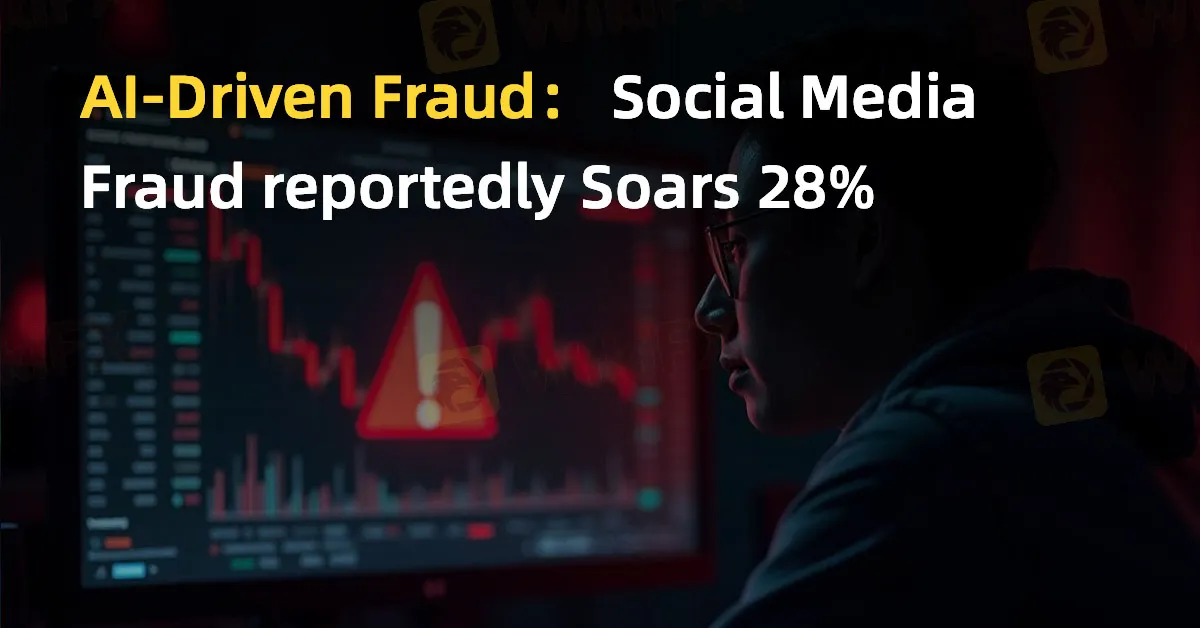Abstract:As the 2024 U.S. presidential election approaches, a concerning surge in AI-enabled identity fraud on social media platforms is emerging. Criminals increasingly exploit AI technology, leveraging deepfake and automated account creation techniques to manipulate online discourse and infiltrate verification systems.

Introduction
As the 2024 U.S. presidential election approaches, a concerning surge in AI-enabled identity fraud on social media platforms is emerging. Criminals increasingly exploit AI technology, leveraging deepfake and automated account creation techniques to manipulate online discourse and infiltrate verification systems. According to the report,social media-based fraud attacks have spiked by 28% this year, up from just 3% at the beginning of 2024. This rise underscores the growing sophistication of fraud tactics, as AI enables identity theft on an unprecedented scale.
AI-Driven Fraud
The sharp increase in fraud on social media platforms is tied to AI's ability to industrialize the process of creating fake identities. Criminals are utilizing automated tools to produce thousands of counterfeit accounts in a fraction of the time, employing advanced generative AI to mimic real individuals and evade detection. This widespread automation makes it challenging for both platforms and users to distinguish between genuine and fraudulent accounts, raising significant concerns about online safety.
September saw the highest levels of fraudulent activity so far this year, with fake accounts flooding social media to spread disinformation and influence public opinion ahead of the upcoming election. These accounts not only disseminate false narratives but also work to erode trust in digital platforms, which play a pivotal role in modern political discourse. The timing and targeted nature of these attacks add another layer of complexity to the social media landscape, as platforms struggle to adapt to increasingly sophisticated threats.
The Role of Deepfake Technology in Identity Fraud
A defining aspect of this trend is the use of deepfake technology to create synthetic media that appears convincingly real. Fraudsters are now generating “deepfake selfies” that align with fabricated identities, bypassing traditional verification systems. As facial recognition and Know Your Customer (KYC) protocols become more prevalent in social media and financial services, fraudsters are finding ways to manipulate these systems with AI-generated synthetic faces that can mimic human expressions and visual nuances.
This capability has allowed fraudsters to infiltrate platforms with greater ease, evading detection from most automated KYC systems. Traditional methods that once relied on static selfies or ID checks are proving ineffective against these sophisticated digital forgeries, prompting a need for more advanced detection and authentication methods.
The Impact on Social Media and Public Discourse
The surge in AI-enabled fraud has significant implications for the social media landscape, especially during an election year. Fraudulent accounts have become vehicles for spreading disinformation, sowing discord, and influencing voter perceptions. This interference not only disrupts public trust but also complicates efforts to maintain a safe and authentic digital space for election-related dialogue.
Social media platforms are grappling with the challenge of maintaining a secure environment while allowing for free and open expression. As AI-driven fraud tactics evolve, platforms face pressure to implement robust security measures that can detect deepfake images, spot automated behavior, and safeguard genuine users from malicious interference.
Challenges in Combatting AI-Driven Fraud
Detecting and preventing AI-enabled fraud poses unique challenges. Traditional detection methods, such as pattern recognition and static verification, are often insufficient against dynamic, AI-generated content that can adapt to avoid detection. Furthermore, as AI technology becomes more accessible, a growing number of individuals have the tools to create high-quality forgeries, exacerbating the spread of identity fraud.
Enhanced verification techniques, such as multi-factor authentication and real-time identity checks, are being explored as solutions to this issue. However, developing and implementing these systems in time for the election season remains a considerable hurdle, particularly as fraudsters continue to innovate and find new ways to bypass security measures.
Strengthening Identity Verification Systems
To combat the rise in AI-enabled identity fraud, social media platforms and regulatory bodies are turning to advanced technology solutions. These include AI-based detection systems designed to identify deepfake content, as well as improved KYC protocols that go beyond static verification.
Emerging technologies, such as behavioral biometrics and continuous authentication, show promise in helping platforms differentiate between genuine users and AI-generated impostors. By focusing on behavioral patterns rather than static identifiers, these systems may provide a more reliable way to secure online interactions and protect users from identity fraud.
Conclusion
The 2024 election season highlights the need for heightened awareness and innovation in digital security, as AI-driven identity fraud reaches unprecedented levels on social media platforms. With fraud attacks up by 28% and AI-generated deepfake content becoming increasingly sophisticated, social media is facing one of its biggest security challenges to date. As platforms work to enhance verification and detection methods, users should remain vigilant and informed about these evolving threats. Only with a collaborative effort from technology providers, policymakers, and the public can the online space become safer and more resilient against the rising tide of AI-enabled identity fraud.










